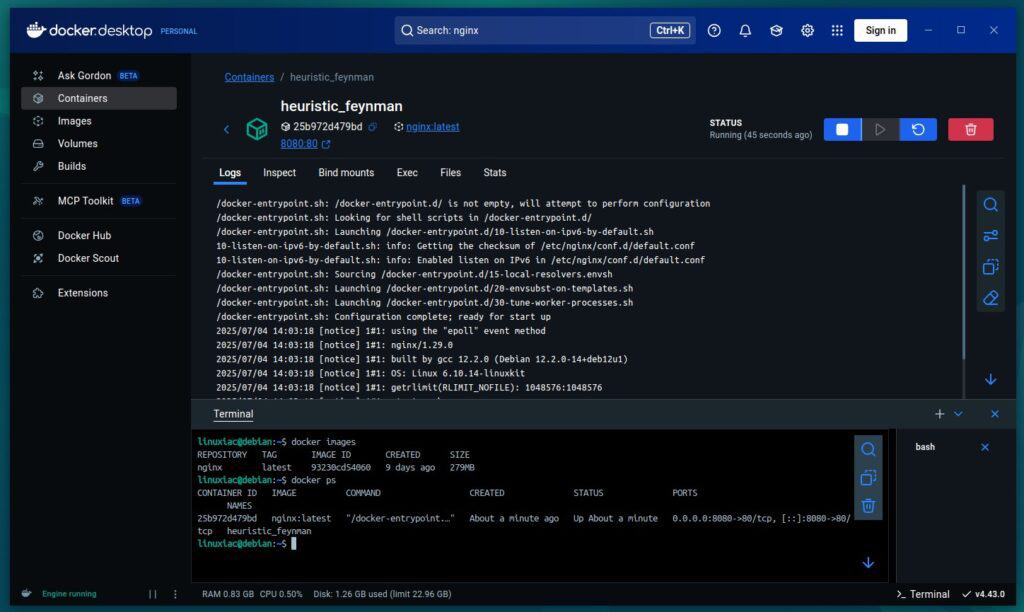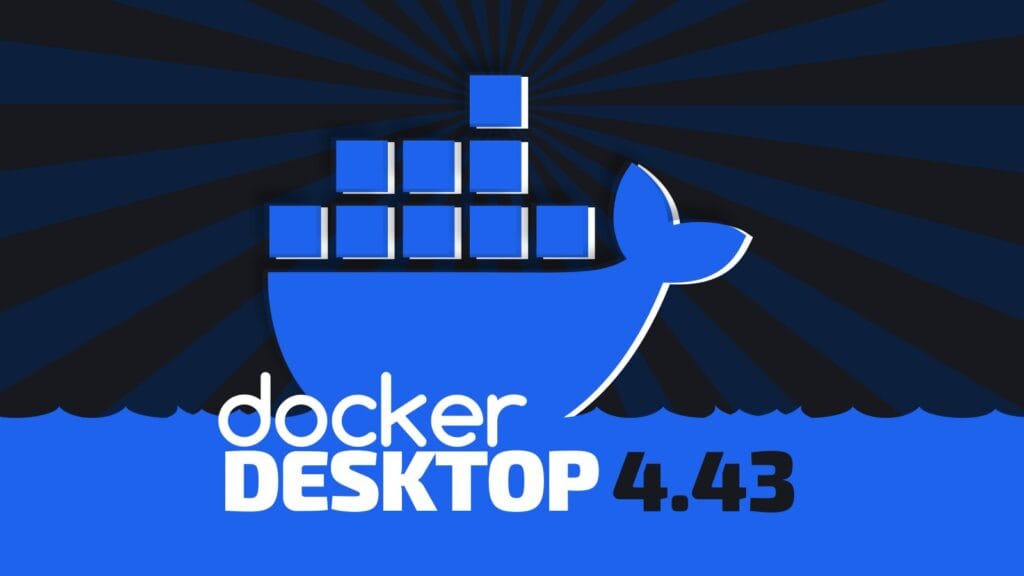Docker Desktop, the popular development platform for building, testing, and deploying containerized applications across various environments, has introduced its latest update, Docker Desktop 4.43, with several significant changes.
One of the standout improvements is found in Model Runner, which now includes enhanced model management and expanded compatibility with the OpenAI API. Developers can inspect AI models directly within Docker Desktop via intuitive model cards, simplifying the evaluation and selection process.
The introduction of new subcommands—docker model ps, docker model df, and docker model unload—provides precise control over model monitoring and resource management, making workflows more efficient.
Additionally, there is some good news for those of you betting on WSL2, as these new docker model commands seamlessly integrate into existing Linux-based workflows, eliminating the need for switching contexts.
And now, something very exciting – the new Compose Bridge simplifies transitioning Docker Compose setups to Kubernetes configurations with just a single command. This innovation automatically generates comprehensive Kubernetes resources, ensuring that local development environments can be quickly and accurately mirrored in production-like Kubernetes clusters.

API enhancements in Model Runner offer improved compatibility with dynamic tooling through support for stream options ({"stream": "true"}) and OPTIONS calls. Developers also gain the ability to configure Cross-Origin Resource Sharing (CORS) directly, improving security and control.
Moreover, developers can now submit their own MCP servers through Docker’s new submission process, with the option to choose between Docker-built and community-built servers. Docker-built servers receive extensive security measures, including vulnerability scanning, while community-built servers still benefit from crucial container isolation.
Lastly, the MCP Toolkit adds yet another layer of convenience by introducing OAuth support, starting with GitHub, for secure and streamlined authentication. This update integrates seamlessly into popular development environments, such as VS Code and GitHub, enhancing security by eliminating the need to store sensitive credentials in plaintext.
For detailed information about all changes, refer to the official announcement or check out the release notes. If you’d like to try out the app, we’ve provided detailed guides on installing it on Ubuntu, Linux Mint, Debian, and Fedora.
Docker Desktop 4.43 is available for download on various major OSes, including Windows (x86_64), Windows ARM Beta, macOS (Intel and Apple Silicon), and Linux (APT and RPM-based distributions, plus distros from the Arch ecosystem).
